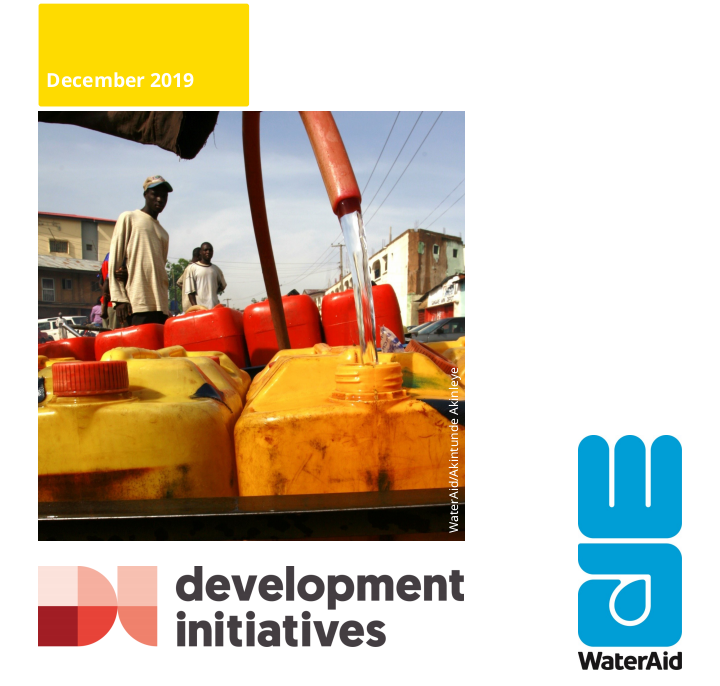With recent efforts to improve access to clean water, decent toilets and good hygiene, tackling widespread water and sanitation poverty in Nigeria requires an urgent and substantial increase in financing according to new report from WaterAid published in November 2019.
The Nigeria financing report, highlights the significant funding gap that currently exists in providing water, sanitation and hygiene (WASH) services in the country and calls for action from the Government, donors and the private sector. In 2018, Nigeria’s Federal Government declared a state of emergency for WASH and launched a National Action Plan to revitalise the sector, following strong calls by WaterAid Nigeria and other stakeholders.
Although Nigeria has made some progress in reaching people with safely-managed drinking water services, over 150 million have been left behind. Similarly, those with access to safely-managed sanitation grew from 25% to only 27% of the population between 2000 and 2017. With open defecation still practised by over 40 million in 2019, Nigeria has a big task ahead in ensuring sustainable clean water, decent toilets and good hygiene services are accessible and available to all.
The report, based on research and analysis by DESCRIPTOR Development Initiatives, provides a new assessment of the level of financing that is required to achieve universal access to water and sanitation in Nigeria by 2030. As it stands, the financing gap is around $20 billion (about 7.2 trillion naira) of investment annually. There will need to be a significant upscaling of resourcing over the next decade if the National WASH Action Plan is going to create real results for the people of Nigeria.
Adebayo Alao, Head of WASH Service Delivery, WaterAid Nigeria, says:
“Nigeria faces huge challenges over the next decade – from a growing population and power outages, to rapid urbanisation and climate change. Closing the major funding gap that exists in the provision of clean water, decent toilets and hygiene services is essential to future-proofing Nigeria and building a more equal, resilient and prosperous nation. This new report highlights ways that Governments, donors and civil society groups must act to bring about a ten-fold increase in investment and bring these basic services to everyone by 2030.”
The Nigeria financing report also highlights the need to ensure that all new investments can withstand the impacts of climate change. Without climate-resilient WASH services, climate change will place more pressure on already stretched resources and cause the funding gap to increase every year.
WaterAid states that to ensure effective resourcing of WASH services in Nigeria, there is need for increasing the level of civil society involvement, a focus on providing long-lasting, sustainable services, and calls for Nigeria to receive support for climate-resilient finance.
